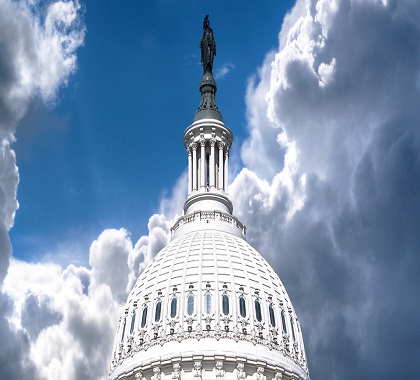The Maryland House of Delegates is considering a resolution calling on Congress to organize a national convention for drafting an amendment to the U.S. Constitution limiting terms in office.
If approved by both houses, House Joint Resolution 4 (H.J.R. 4) could enter Maryland in a convention of states for the purpose of proposing the amendment.
The resolution is based on model language proposed by U.S. Term Limits, a nonprofit organization advocating limits on lawmakers’ tenure at all levels of government.
Article V of the U.S. Constitution establishes methods for proposing and enacting amendments, including a state-led process. After 34 states call for an amendment convention, commissioners meet to draft an amendment or amendments enacting the specified proposal. Three-quarters of the states must ratify the proposed amendment for it to take effect.
The House of Delegates convened a hearing on H.J.R. 4 on February 26 but did not vote on the measure.
Two state legislatures have passed resolutions consistent with the U.S. Term Limits draft legislation so far.
Says States Must Lead
Maryland state Del. Michael McKay (R-Cumberland), H.J.R. 4’s sponsor, says the federal government, including Congress, has grown too powerful.
“It seems to me that Congress has, unfortunately, gotten too big and can’t control itself,” McKay said. “The states need to sit down and take control of the reins. What we’re hoping to do is to restore the balance of state and federal government, as the Founders intended.”
Fixes a Broken Congress
Ken Quinn, a regional director for U.S. Term Limits, says congressional term limits would allow representatives to do what’s right instead of always having to do what’s popular at the moment.
“They’re afraid if they take on these tough issues and have to make some hard decisions, they won’t get reelected,” Quinn said. “We need to free our members of Congress from those restraints so they can get the job done that needs to get done.”
McKay says a term limits amendment would help fix congressional dysfunction.
“I think history has proven that they don’t have the will or the desire to actually have this come to a debate,” McKay said. “At end of the day, through the state level, it’s the people who will say enough is enough.”
Cites Widespread Support
Quinn says term limits have very broad support among the public.
“This is completely nonpartisan,” Quinn said. “Eighty-two percent of Americans want this, regardless of their political party, their income bracket, or their gender. This amendment will be the easiest one to get the American people behind, because they want it so badly.”




